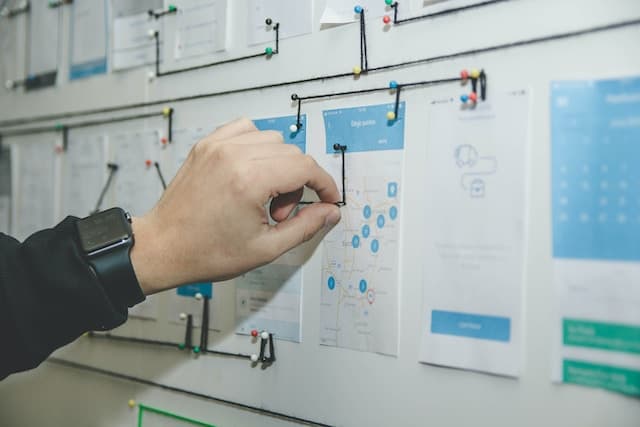Project management is a multifaceted discipline that demands careful planning, coordination, and execution. To ensure the successful completion of projects, project managers rely on an arsenal of tools to streamline their tasks, enhance team collaboration, and keep budgets on track. In this blog post, we’ll explore six invaluable tools that every project manager should consider incorporating into their workflow. These tools encompass a wide range of functions, from budget and expense tracking to task management and communication, all aimed at helping project managers achieve greater efficiency and effectiveness.

Budget and Expense Tracking Tools
One of the fundamental aspects of project management revolves around staying within budgetary constraints. Keeping a tight leash on expenses and ensuring resources are optimally allocated is paramount. Here, the use of budget and expense tracking tools becomes indispensable. These tools offer project managers robust financial management solutions, designed to seamlessly integrate with project management platforms. By centralizing financial data within these systems, project managers can gain real-time insights into project costs, allocate resources more efficiently, and make informed decisions to keep projects on track, all while maintaining a project management focus.
Task Management Software
Task management software is the backbone of efficient project management. These versatile tools empower project managers to create, delegate, and track tasks with ease. Whether it’s organizing intricate project workflows, setting deadlines, or assigning responsibilities, task management software streamlines the entire process. With features like task prioritization, due date reminders, and real-time progress tracking, it ensures that everyone on the team stays aligned and focused on project goals. These platforms not only enhance productivity but also promote collaboration by centralizing task-related communication and documentation. In essence, task management software keeps projects on track while simplifying the complex web of responsibilities that project managers must oversee.
Communication and Collaboration Platforms
Communication and collaboration platforms play a pivotal role in modern project management. These tools serve as the central hub for team interactions, enabling project managers and team members to communicate in real-time, share important documents, conduct virtual meetings, and track project progress collaboratively. Whether it’s the instant messaging capabilities of platforms like Slack or Microsoft Teams, the seamless integration of file sharing and video conferencing, or the collaborative workspaces found in tools like Trello, these platforms foster a culture of transparency and agility. By incorporating these communication and collaboration platforms into their workflow, project managers can ensure that information flows freely, issues are addressed promptly, and the project management process remains streamlined and efficient, ultimately contributing to the overall success of the project.
Gantt Chart Software
Gantt charts are an essential visualization tool in project management, providing a clear and concise overview of project timelines and dependencies. Tools like Microsoft Project or GanttPRO allow project managers to create, update, and share Gantt charts effortlessly. These charts help project managers prioritize tasks, identify potential bottlenecks, and make data-driven decisions to maintain project management efficiency. With Gantt chart software at their disposal, project managers can effectively plan and monitor project progress, ensuring that project management remains at the forefront of their strategy.
Resource Management Solutions
In project management, optimizing resource allocation is a constant challenge. Resource management tools like ResourceGuru or Float enable project managers to allocate personnel efficiently, considering their availability and skill sets. This proactive approach ensures that project management objectives align with resource availability, preventing overloading or underutilization of team members. By focusing on resource management, project managers can maintain a project management-centric approach and allocate resources effectively to meet project goals.
Risk Management and Analysis Tools

Risk management and analysis tools are indispensable assets in the toolkit of every project manager. These tools provide a systematic and data-driven approach to identifying, assessing, and mitigating risks that can potentially derail a project. By offering a comprehensive view of potential risks and their impact, project managers can prioritize their efforts and allocate resources effectively to address these challenges. Moreover, these tools enable project managers to develop mitigation strategies, contingency plans, and risk response plans, ensuring that the project remains on course even in the face of unforeseen obstacles. In essence, risk management and analysis tools empower project managers to proactively manage uncertainty and maintain a project management-centric focus, ultimately leading to more successful project outcomes.
The evolving sector of project management necessitates a diversified strategy. Project managers can maintain a project management-centric approach while improving their capacity to effectively plan, execute, and monitor projects by including these six practical tools in their toolbox. These tools, which range from task management and risk analysis programs to budget and expense tracking systems, enable project managers to stay on top of their game and make sure that every project is successfully implemented.

